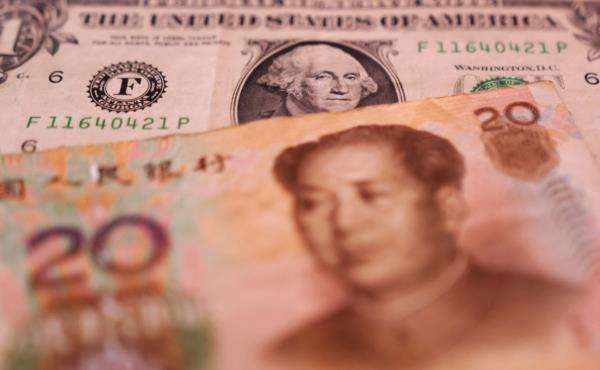
China's foreign exchange reserves dropped to $3.219 trillion in January, reflecting a decrease from the previous month. This decline comes amid ongoing economic challenges and global uncertainties.
The People's Bank of China (PBOC) reported that the country's forex reserves experienced a slight decline of $5.97 billion compared to December 2021. While the drop may appear modest, it is essential to note that it represents the first decrease in China's foreign exchange reserves in six months.
China's forex reserves play a significant role in maintaining stability in the country's currency, the yuan. These reserves act as a buffer against economic shocks, allowing China to mitigate potential currency fluctuations. The size of the reserves also influences global financial markets, as China holds the world's largest foreign exchange reserves.
The decline in forex reserves can be attributed to various factors. China has been grappling with the impact of the COVID-19 pandemic, which has disrupted global trade and economic activities. The ongoing trade tensions with the United States and other countries have also created uncertainties, affecting investor sentiment and currency flows.
Moreover, China has been battling soaring commodity prices, which have put pressure on its import bill. The rising costs of essential commodities, such as energy and raw materials, have led to increased demand for foreign currency, contributing to the decrease in forex reserves.
China's policy stance also plays a role in the fluctuation of its forex reserves. The country has been gradually easing its strict capital controls in recent years, allowing more freedom for capital flows. This shift has led to greater volatility in the movement of funds into and out of the country, impacting the size of forex reserves.
Despite the decrease in forex reserves, China's overall economic fundamentals remain robust. The country has witnessed a strong recovery from the pandemic, with solid economic growth and increased domestic consumption. China's vast manufacturing sector has been a driving force behind its economic rebound, contributing to a surge in exports.
Furthermore, China's foreign trade has been resilient, with export volumes rising and contributing to a positive current account balance. This indicates that China continues to maintain a competitive edge in global trade, supporting its overall economic stability.
It is worth noting that China's forex reserves are still at a comfortable level, providing ample ammunition to navigate any potential challenges ahead. The drop in January's reserves is within a manageable range, and the PBOC has the tools and capabilities to stabilize the currency if necessary.
Looking ahead, uncertainties persist, particularly with ongoing trade tensions and the trajectory of the global economy. However, China's resilient economic performance and proactive policy measures are expected to strengthen investor confidence and help manage any bumps in the road.
In conclusion, China's foreign exchange reserves experienced a decline in January, reaching $3.219 trillion. This drop can be attributed to various factors, including the impact of the pandemic, trade tensions, and rising commodity prices. However, China's robust economic fundamentals and substantial forex reserves provide a solid foundation to navigate through future uncertainties.







